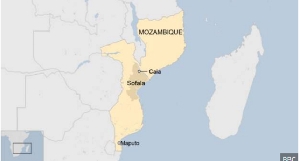- Home - News
- TWI News | TV
- Polls
- Year In Review
- News Archive
- Crime & Punishment
- Politics
- Regional
- Editorial
- Health
- Ghanaians Abroad
- Tabloid
- Africa
- Religion
- Election 2020
- Coronavirus
- News Videos | TV
- Photo Archives
- News Headlines
- Press Release
General News of Tuesday, 23 April 2019
Source: classfmonline.com
Filth costs Ghana $290m each year – Sanitation Minister
Ghana spends $290 million, 1.6 percent of her GDP, on poor sanitation every year, the Minister of Sanitation and Water Resources has said.
Taking her turn at the meet-the-press series on Tuesday, 23 April 2019, Mrs Dapaah said the per capita cost was $12.
So, “it makes a lot of economic sense to invest in sanitation; every dollar invested in sanitation yields $5 dividends”, she told journalists.
She said the 2019 report released by the Ministry of Monitoring and Evaluation, shows that “75% of the solid waste generated in the urban centres is now properly managed” but noted that there were still miscreants who dump refuse indiscriminately.
“Consequently, the ministry has decided to facilitate the deployment of Sanitation Guards, popularly known as ‘saman saman’ by July this year in the MMDAs to strengthen the enforcement of the sanitation bye-laws to maintain cleanliness in our cities and towns,” she remarked.
Meanwhile, she advised young women to reject the marriage proposals of men who have no decent toilet facilities in their homes.
Mrs Dapaah said: “When your facility breaks down, meaning your toilet facility, please invest some money to maintain and reconstruct or rehabilitate it. It will help all of us."
“We know what sanitation gives to us, sanitation gives all of us dignity, especially we the women, so, I entreat all young ladies: if you’re marrying and the man doesn’t have a toilet in the home, please don’t agree.”
She also revealed that the ministry has launched guidelines for targeting the poor and vulnerable for basic sanitation services in Ghana.
“The ministry has launched, through the support of USAID and global communities, guidelines for targeting the poor and vulnerable for basic sanitation services in Ghana. The guideline is aimed at guiding the government and other sector partners to ensure equity and inclusion in the delivery of sanitation services”, she noted.











